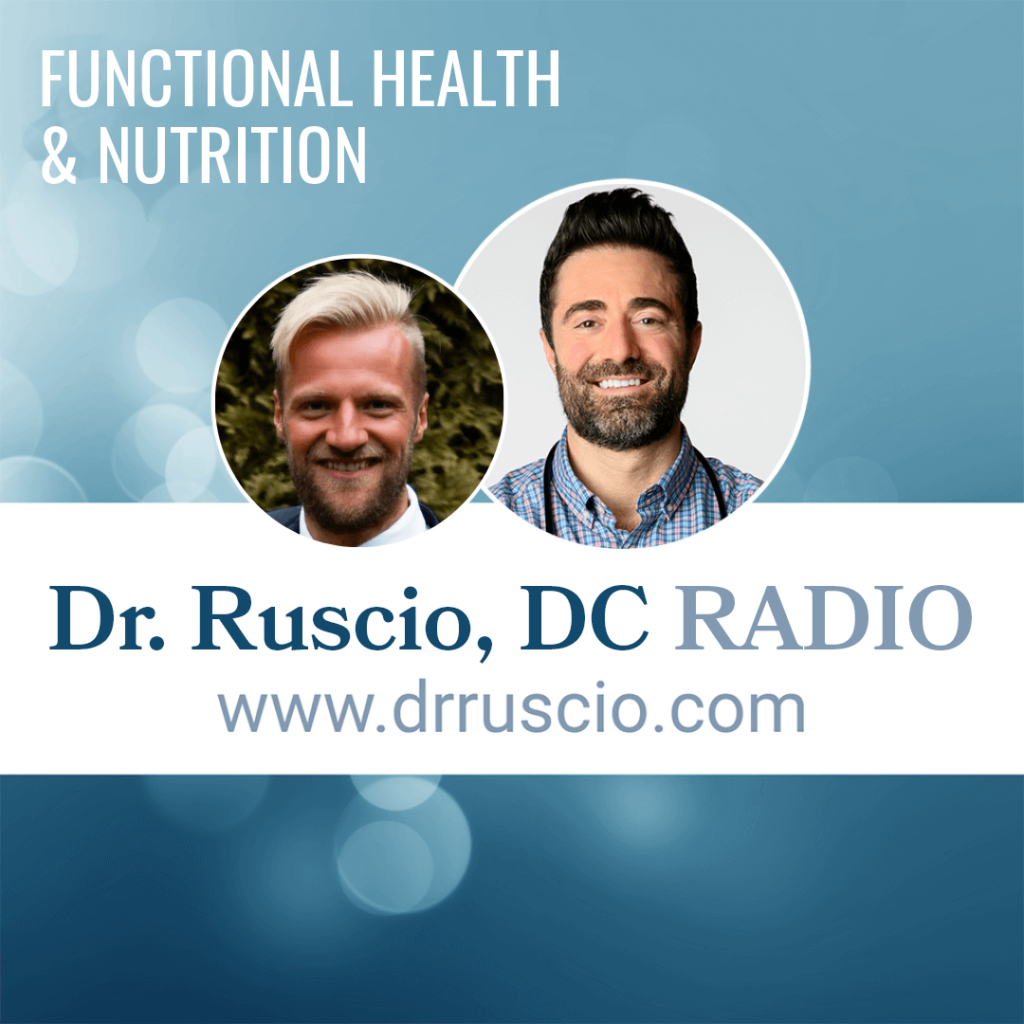Optimizing Protein Intake: Are Plant-Based Meats Enough?
Nutritional differences between plant and animal-based diets and how to address common micronutrient deficiencies with Dr. Stephan van Vliet
Protein helps repair and build your body’s tissues, keep your immune system strong, and transport and store nutrients. Since it’s critical to your health, it’s important to know how to optimize your protein intake. Are animal-based foods superior to plant-based foods? Can you obtain all the nutrients you need from only plant-based foods? Nutrition scientist Dr. Stephan van Vliet shares the latest research findings that provide answers to these questions.

Download this Episode (right click link and ‘Save As’)
Dr. Michael Ruscio is a DC, natural health provider, researcher, and clinician. He serves as an Adjunct Professor at the University of Bridgeport and has published numerous papers in scientific journals as well as the book Healthy Gut, Healthy You. He also founded the Ruscio Institute of Functional Health, where he helps patients with a wide range of GI conditions and serves as the Head of Research.
➕ Dr. Ruscio’s, DC Notes
Early Career
- Dr. Stephan acquired his Masters in Nutrition and Exercise Science shortly after graduating from business school.
- In his PhD program, he was primarily studying proteins.
- Post PhD, he conducted a study to analyze the anabolic response to eating 15-25mg vs 30mg of soy isolate protein per meal.
- He found that those eating 15-25mg per meal had a lower anabolic response and consuming at least 30mg per meal was enough to get a full nutrient profile.
Essential Nutrients From High-Protein Foods
Meats and eggs contain:
- Creatinine
- B-vitamins
- Zinc
- B-12
Plant proteins like tofu, lentils, and edamame contain:
- Folic acid
- Vitamin E
- Phytochemicals
Grass-Fed Vs Plant-Based Meat
- Study Background and Findings: Despite similarities in nutrition fact labels, a further look into 200 compounds not on the labels showed a 90% difference in metabolite abundance.
- Study Conclusion: These products should not be viewed as truly nutritionally interchangeable, but rather as complementary in terms of provided nutrients.
The Study With Appetizing Plantfood-Meat Eating Alternative Trial (SWAP-MEAT)
The parameters: 36 healthy participants were instructed to consume ≥2 servings/day of plant-based products compared with animal-based products for 8 weeks each.
The findings:
- The plant-based products helped with improving weight, cholesterol, and other cardiovascular risk factors.
- There was no difference in inflammatory markers.
Micronutrient Deficiencies: Why They Happen And How To Address Them
Why they happen:
- Micronutrient deficiencies often happen in low and middle-income countries and among population groups with increased needs and/or lack of nutrient-dense food sources.
- In the United States, 20% of women of childbearing age have micronutrient deficiencies—with zinc and iron being the most common.
How to address them:
- Aim to eat foods high in the specific micronutrients. Those include organ meats (liver, kidney, spleen, and hearts), oysters, and mussels.
Exciting Projects Coming Up In Human Health and Agriculture
- Upcoming study
- Parameters: It will be a 14-week randomized crossover trial. People will be eating the same foods for 7 weeks. Foods are either sourced from regenerative agriculture or conventional non-organic produce commonly obtained at the grocery store.
- Papers
- Several papers are coming out about comparing grazing practices with beef and bison at different livestock systems.



Discussion
I care about answering your questions and sharing my knowledge with you. Leave a comment or connect with me on social media asking any health question you may have and I just might incorporate it into our next listener questions podcast episode just for you!